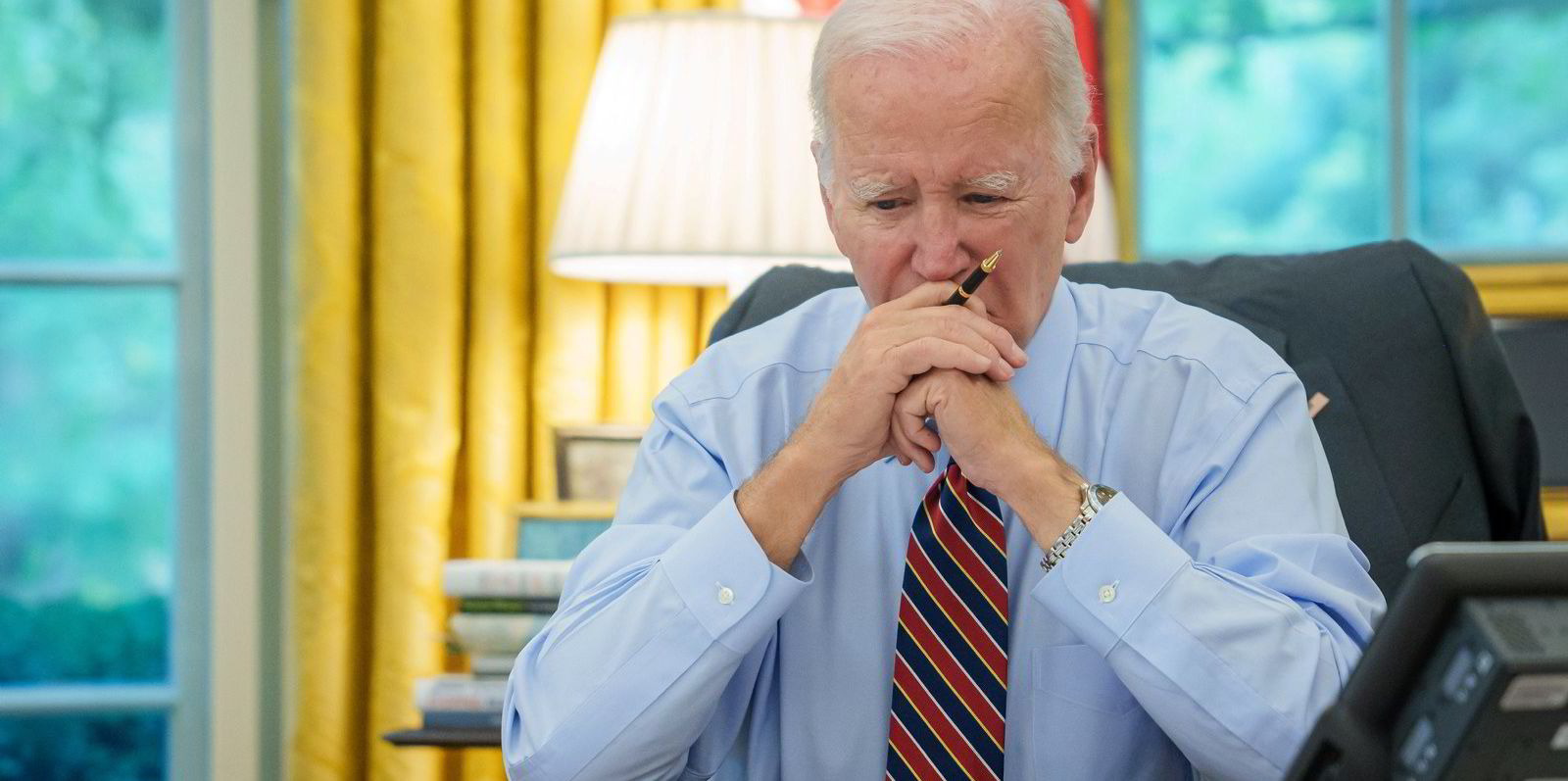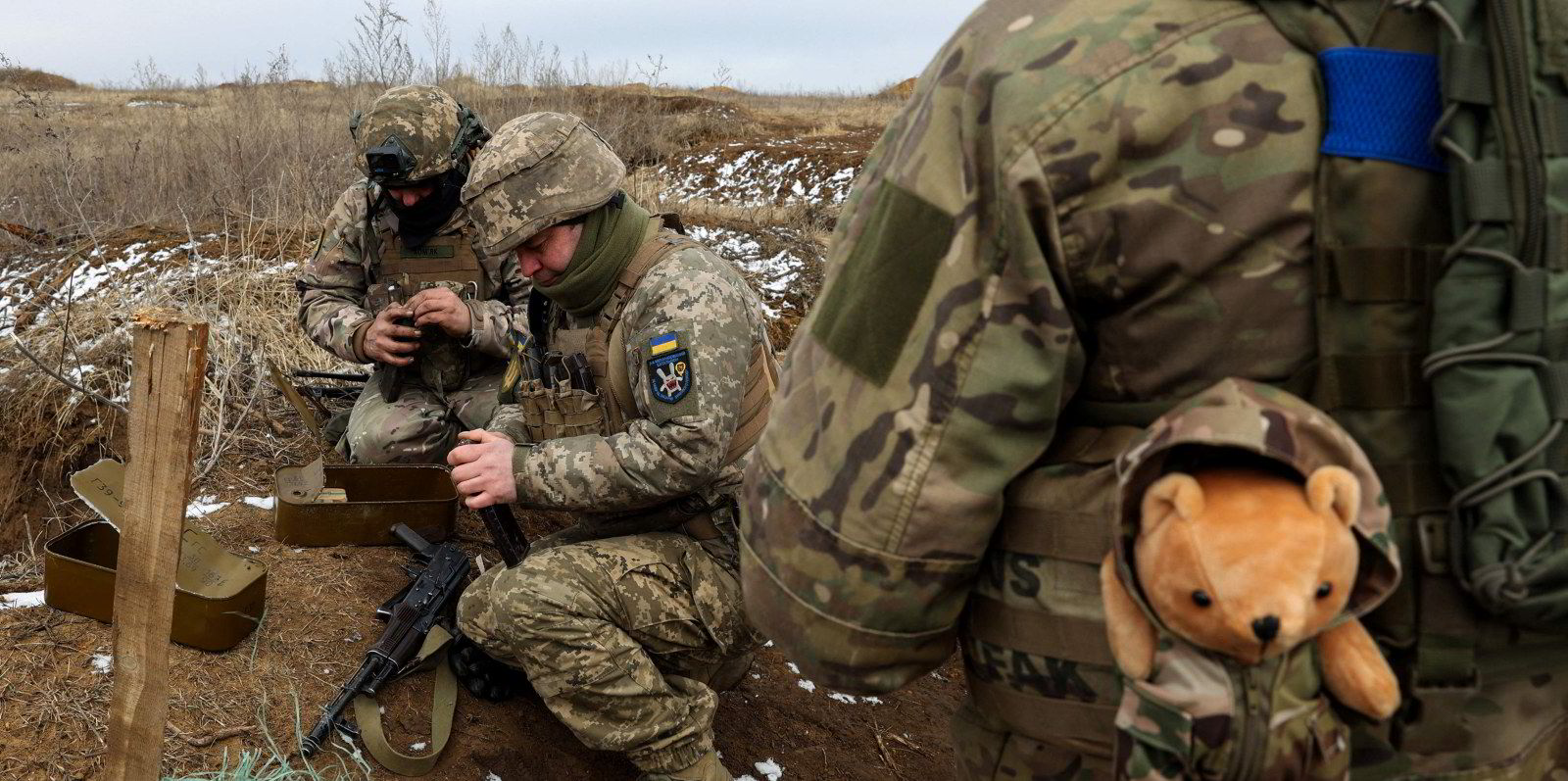The second anniversary of Russia’s invasion of Ukraine was marked by new sanctions, new tactics and lots of rhetoric but the same old flaws.
The nations arrayed against Russian President Vladimir Putin — notably the US, European Union and UK — were always going to mark the moment with eye-catching measures aimed at showing their continued support for Ukraine.
The US Treasury declared them to be “unprecedented and expansive”. Hundreds of entities were listed by the various regimes, mostly unconnected with shipping — but there were also significant changes that signal how the US will continue.
The US has led the way among G7 member states with its sanctions enforcement operations. Before last week, it had blacklisted 27 individual oil tankers. That number increased by 14 with more Sovcomflot vessels targeted to join the seven already on the list.
The previous blacklisting of SCF Group vessels cited a US nexus, which was unstated but appeared to be through flag states, including Liberia and the Marshall Islands, which have offices in the US.
In earlier cases, the authorities had also specified instances where tankers were said to have breached the oil price cap, the US-championed mechanism that allows G7-linked vessels to keep shipping Russian oil if the barrels are sold below a certain level.
Those listings clearly had an impact with tankers stopped, and in some cases, abandoning voyages as they reflagged and repositioned vessels.
But in the latest round, most of the 14 were flagged by Gabon and there was no mention of a US nexus that could directly impact the ships. There was also no mention of specific alleged breaches of the price cap. A sign of regulators seeking to spread their net wider?
One day earlier, the UK announced sanctions against three shipping companies, two Turkish and the Dubai-based unit of Swiss-headquartered Fractal, another apparent sign of a bolder approach by regulators.

The sanctions programmes had previously focused on non-European players. No Greek operators have been targeted yet as they — like Fractal — have repeatedly said they operate within the price cap mechanism.
While the EU — or non-EU member Switzerland — did not follow suit, the main players who have imposed sanctions work closely together. And EU sanctions envoy David O’Sullivan has previously highlighted the potential legal threat faced by EU citizens based in the United Arab Emirates involved in sanctions circumvention.
But comments by UK officials have gone to the heart of the difficulties in making this complex instrument work, aimed at sustaining global oil flow while curbing Russian revenues used to fuel its war in Ukraine.
A successful oil price cap relies on the involvement of Western service providers. The rise of the shadow fleet without connections to Western shipping services renders it partially impotent.
The surging price of oil in the summer of 2023 highlighted further shortcomings as tanker traffic out of Russian ports continued, partly with Western involvement.
The US responded by shifting its stance and announced the start of “phase two” of the price cap, aimed at a tougher enforcement strategy and increasing the costs to Russia of building a fleet to carry the oil.
Olga Dimitrescu, head of engagement for the oil price cap at the UK’s sanctions regulator, said the UK’s strategy was to “force” Russian oil back to the mainstream fleet. The two-pronged strategy she outlined involved more designations while engaging with other countries to persuade them to comply with the cap.
“By operating on both of these two levels, we’re making it harder for Russia to use its shadow fleet, which in turn would force more volume back into the G7 fleet where service providers are compliant with the cap,” she claimed in a podcast earlier this year.
Dash for tonnage
The evidence points to the exact opposite outcome. The sanctions have seen Western providers drop out of the trade and targeted ships retreat further into the non-G7 regulated world.
It has resulted in the shadow fleet hauling sanctioned oil swelling to more than 700 ships, according to the latest data from BRS Shipbrokers.
And engaging other countries has been a palpable failure, with the two biggest buyers — India and China — outside of the scheme from day one.
India hoovered up cut-price Russian crude once sold to the EU, while China has always vociferously opposed unilateral sanctions.
The opposing theory — proposed by BRS and Fractal CEO Mathieu Philippe — is that turning the sanctions screw will make the dark fleet sail deeper into the shadows.
And that could lead to a new scramble for limited tonnage, as seen in 2022, and send asset prices to new heights once more.
Read more
- P&I clubs pull cover after UK blacklists tanker operator Fractal
- US slaps Sovcomflot and 14 tankers with sanctions in next ‘step’ after price cap
- US says Russia has no ‘good choices’ after sanctions crackdown
- Tanker newcomer Fractal challenges UK blacklisting over Russia role
- Editor’s selection: Captain’s ‘life-changing slip of the tongue’, price cap crackdowns and complicated convertibles...
- Swathe of US and EU sanctions targets include shipyards, owners and vessels





